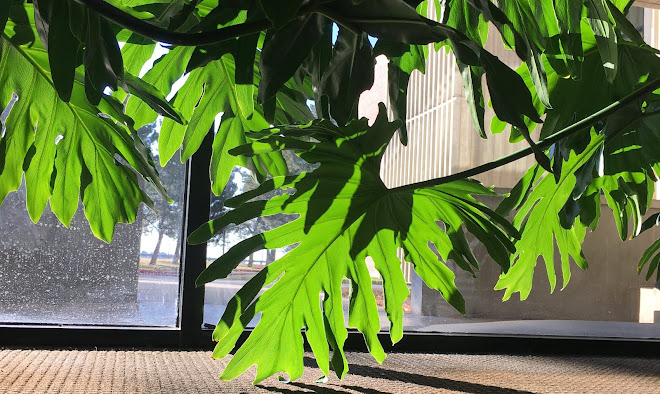Sunday, December 4, 2016
Oh god I want to create
And I want to live life I
Want to be bright and fast and streak across the sky on fire
Madly happy
In love
Laughing
I want to get out of my own skin
I want to burn away my bones
And supernova my heart
Explosion of emotion
I want to wrap myself in the cords of vulnerability and affection
Honest to goodness
I want to smile with firelight in my eyes
No more polite grins
Stretched thin,
Blue
And empty.
I want to unfold my wings
And take off,
See the whole world in true clarity
And heart breaking color.
Thursday, November 24, 2016
What am I?
Nothing.
What will anyone remember?
What does anyone remember now?
A lunatic,
Crazed, perhaps?
She tore down the mirror with hand-tipped claws.
A /mono/ possibly, /Mona/
Up the tree, a little tipped in the brain,
Simple.
Or even a red star burning out,
Terrible and sublime (sub-lime) for a while,
But in the end,
Quite disappointing.
I really am nothing that is thought of me,
Only a hollow voice and a thirsty ego.
A little too eager to please,
But soul-dehydrating fearful of
Falling short of all of your expectations.
Sunday, November 20, 2016
Egomaniac
The world whirls out of focus,
I lose my balance
My mind
my mind chatters away,
Digging a hole to hide in
No reason why,
Only that I am paranoid,
and a narcissist,
and I'm not entirely sure I am lovable,
deserve to be loved
at the same time that I believe
Everyone should love me.
Feck
I'm listening to Leonard Cohen, I read the New Yorker article about his death this morning.
I drank jasmine tea, understeeped while eating oatmeal and reading "Walk Two Moons".
This thesis won't write itself, but there are other things calling, other things neglected in the neglecting of it.
Leonard's muse. My muse, I don't really have a muse, but I have a twinkle star that won't come to my fingers, eludes my veins.
Deeply feeling, do you suppose? Or just a twisted column, kinked towards the bottom?
Damn everything with a fork and spoon, my life will probably sputter out, ghost promises and cobweb hopes.
The Cripple of Inishmaan, brutal and sweet and cruel, feeds some of this, perhaps. Bitter.
Thursday, November 17, 2016
Tuesday, November 8, 2016
Monday, November 7, 2016
Why is my heart a
Black hole? My mind a windy
field of barley.
I am not so sad
As the waterfall world, but
I want to wail.
Thursday, August 18, 2016
Saturday, July 9, 2016
Love Song to Inertia
Wednesday, June 8, 2016
Climb the Tree, Come Down Only for Green Mangoes
on the continent's brow.
Flash of yellow light, stars
and the world was outlined in red
and yellow, bright blue and salmon walls.
Pounded down by a waterfall,
strong enough to stay standing.
Wore me down and built me up,
little sandcastle human,
shaped by the branches that reminded
me of my own softness.
Surrounded by new colors, I forgot
what my own shell looked like.
Sycophant, the outside reflected the inside
reflecting self of surroundings.
A continuous, silver song
White on white
on blue on verdant on saffron
Goldenrod azul.
Butterfly, blue.
A Realization
While I was there, I was completely floored by the absolute beauty of the countryside and the cities of Medellín and Santa Fe de Antioquia. I am but a small desert girl, and being surrounded by all of that greenery was absolutely breathtaking. The flowers were everywhere, blooming from bushes and trees, flashes of orchids in the mountains and gardens in the cities. The color quenched and awakened a thirst in my eyes.
I was afraid that I wouldn't be able to stand being back home, in the mud and grayness of Winter giving way to Spring.
Surprisingly, a film had been washed from my eyes in Colombia, and I looked at my landscape with clear vision. The beauty here, so different from Colombia, pierced my heart just the same, and I discovered just how much I love this landscape. The wild trees in my valley, rocky mountain juniper and cedar, may be shorter, stockier, and less lush than those in Colombia, but they are still so beautiful. The blue-grey, scaly fields of sage, low to the ground feel like home.
Don't get me wrong, though, there are desert landscapes in Colombia too, around drought and just normally dry areas near the mountains of Antioquia. I saw cacti there taller than what grows close and nearly invisible to the ground in the hills of my valley.
The spring flowered here, sweeter smelling than Colombia, absolutely white on campus as the trees donned gowns of popcorn balls all along the sidewalk. The black locusts in my backyard were blooming until just yesterday, when the tiny, orchid-like flowers began to fade and flutter to the ground, spent.
I wasn't able to truly appreciate the beauty of my home until I traveled to Colombia, and experienced a land incredibly beautiful, in many many ways. I cannot say that one is more beautiful than the other, but my experience of both has opened my eyes, and I love them dearly.
Saturday, April 16, 2016
Occupying space
This very much relates to something I've been thinking about lately. I very much admire people who I see as spontaneous, and public. Those videos of people messing around in airports? I think they look like fun, and I admire the courage and audacity of the people who perform and record them in public.
However, the other day, I realized that such things are not as out of the blue as they may seem. The people who create those videos of random acts of publicly strange behavior spend a lot of time in those places, they are comfortable in them and they understand how they work.
Rosa Parks spent a lot of time in the abstract space of activism and social change, so she felt when the time was right to keep her seat, she felt comfortable in her decision to own the space she was in.
In realizing all of this and linking it up, I realize that in order to inherit or develop the qualities of those I admire, I must first become comfortable in that space of activism, public connection, or private, instantaneous connection.




